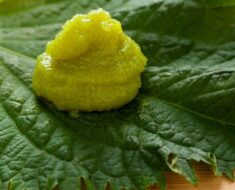In today’s fast-paced world, stress and sleep problems are becoming increasingly common. Many people struggle to unwind, which often leads to sleepless nights and restless minds. If you’re one of those people searching for a natural remedy to calm your nerves and improve your sleep, acupressure may be the solution you’ve been waiting for. In this guide, we’ll explore how acupressure works, which points to target, and how you can use it to manage stress and achieve better sleep.
What is Acupressure?
Acupressure is an ancient healing practice rooted in traditional Chinese medicine. It involves applying pressure to specific points on the body, known as acupoints, to stimulate energy flow and promote balance within the body. Unlike acupuncture, which uses needles, acupressure uses fingers, thumbs, or specialized tools to activate these points. This non-invasive method is both safe and effective for improving overall well-being.
The Connection Between Stress and Sleep
Stress and sleep go hand in hand. When you’re stressed, your body releases cortisol, a hormone that keeps you awake and alert. High levels of stress lead to a disrupted sleep cycle, making it difficult to fall asleep or stay asleep. This can develop into chronic insomnia, causing a negative impact on your physical and mental health. Managing stress is key to improving your sleep quality.
Acupressure as a Natural Remedy for Stress
Acupressure offers a holistic approach to stress relief. By applying pressure to specific acupoints, the body’s energy channels, or meridians, are stimulated, which helps to release tension, calm the mind, and lower cortisol levels. Unlike medication, acupressure addresses the root cause of stress, allowing for a more natural, long-term solution. Plus, it’s easy to practice anywhere—at home, at work, or on the go.
Top Acupressure Points for Stress Relief
Certain acupressure points are particularly effective in reducing stress. Here are three you can start using today:
- Yin Tang (Hall of Impression): Located between your eyebrows, Yin Tang is known to relieve stress, anxiety, and headaches.
- Pericardium 6 (Neiguan): This point, found on the inner wrist, is excellent for calming the heart and relieving tension.
- Large Intestine 4 (Hegu): Located on the hand, this point is often used for stress, headaches, and neck pain.
How Acupressure Helps Reduce Anxiety
Anxiety can be overwhelming, making it hard to function in daily life. Acupressure helps manage anxiety by regulating the flow of energy (Qi) throughout the body. When your energy flow is balanced, you feel more grounded and at ease. Applying acupressure to key points like the ones mentioned above can help you feel calmer and more focused in stressful situations.
Read Also: Find Your Inner Zen: Meditation Techniques for Yogis of All Levels
The Role of Acupressure in Improving Sleep
Acupressure isn’t just about stress relief; it’s also a powerful tool for enhancing sleep. By activating certain acupoints, you can promote relaxation, reduce restlessness, and encourage deeper, more restorative sleep. This method works by calming the nervous system, making it easier to fall asleep and stay asleep throughout the night.
Best Acupressure Points for Sleep Improvement
Here are some top acupressure points to improve your sleep quality:
- Shen Men (Gate of Heaven): Found in the upper ear, this point promotes relaxation and alleviates insomnia.
- An Mian (Peaceful Sleep): This point, located behind the earlobe, is highly effective in calming the mind and encouraging sleep.
- Sanyinjiao (SP6): Found on the inner leg, SP6 is known for balancing hormones and promoting restful sleep.
Acupressure Techniques for Deep Relaxation
When it comes to acupressure, technique is key. Using gentle, circular motions and applying steady pressure for about 2-3 minutes can provide the best results. The goal is to feel a mild, soothing sensation at the point of contact, which signals the release of tension.
How to Use Acupressure for Insomnia
If you’re struggling with insomnia, try applying pressure to points like An Mian and Shen Men before bed. This can help release the physical tension that might be keeping you awake. Combine acupressure with deep breathing exercises for an even more calming effect.
Acupressure vs. Acupuncture: What’s the Difference?
Both acupressure and acupuncture focus on the same energy pathways, but their methods differ. Acupuncture uses needles, while acupressure involves manual pressure. Both are effective, but acupressure offers a more accessible, needle-free option for those seeking stress and sleep relief.
Incorporating Acupressure into Your Self-Care Routine
You don’t need to set aside a lot of time for acupressure. Integrating it into your daily self-care routine, even for just a few minutes, can yield significant benefits. Consistency is key—using acupressure regularly will improve its effectiveness in managing stress and enhancing sleep.
Modern Reflexology: A Resource for Acupressure Knowledge
Modern Reflexology is a fantastic resource for learning more about acupressure. With expert advice and step-by-step guides, Modern Reflexology can help you better understand how to use acupressure to improve your overall well-being. Whether you’re a beginner or an experienced user, the site provides valuable insights into this holistic healing practice.
Other Natural Remedies to Complement Acupressure
While acupressure is incredibly effective, it can be complemented by other natural remedies. Breathing exercises, herbal teas like chamomile, and aromatherapy with essential oils can further enhance relaxation and improve sleep.
Conclusion
Acupressure is a simple, effective way to reduce stress and improve sleep quality without relying on medication. By incorporating it into your daily routine, you can experience its long-term benefits and enjoy a calmer, more restful life.





